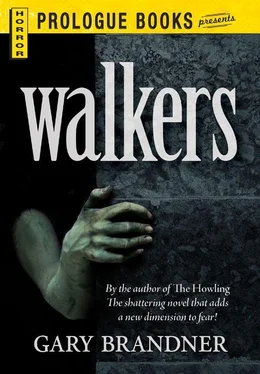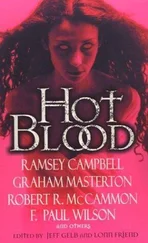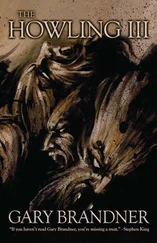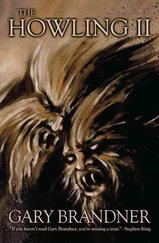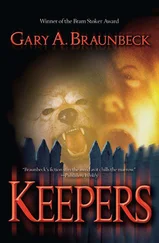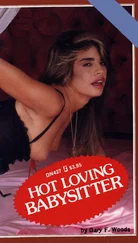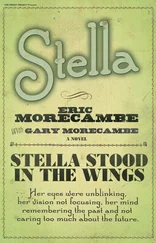Gary Brandner - Walkers
Здесь есть возможность читать онлайн «Gary Brandner - Walkers» весь текст электронной книги совершенно бесплатно (целиком полную версию без сокращений). В некоторых случаях можно слушать аудио, скачать через торрент в формате fb2 и присутствует краткое содержание. Жанр: Ужасы и Мистика, на английском языке. Описание произведения, (предисловие) а так же отзывы посетителей доступны на портале библиотеки ЛибКат.
- Название:Walkers
- Автор:
- Жанр:
- Год:неизвестен
- ISBN:нет данных
- Рейтинг книги:4 / 5. Голосов: 1
-
Избранное:Добавить в избранное
- Отзывы:
-
Ваша оценка:
- 80
- 1
- 2
- 3
- 4
- 5
Walkers: краткое содержание, описание и аннотация
Предлагаем к чтению аннотацию, описание, краткое содержание или предисловие (зависит от того, что написал сам автор книги «Walkers»). Если вы не нашли необходимую информацию о книге — напишите в комментариях, мы постараемся отыскать её.
Walkers — читать онлайн бесплатно полную книгу (весь текст) целиком
Ниже представлен текст книги, разбитый по страницам. Система сохранения места последней прочитанной страницы, позволяет с удобством читать онлайн бесплатно книгу «Walkers», без необходимости каждый раз заново искать на чём Вы остановились. Поставьте закладку, и сможете в любой момент перейти на страницу, на которой закончили чтение.
Интервал:
Закладка:
Seized by panic, Joana turned and ran along the cliff by the guard rail, away from the restaurant. Behind her she could hear the slap-slap of the girl's feet and a high, tragic-sounding wail. It was like a familiar nightmare. Running, Joana fought to get her breath. Behind her, the girl in the white dress gained.
Joana stole a look over her shoulder. She could see the moonlight reflected in the girl's staring eyes. The clawed fingers reached toward her. In an instant of flashback Joana saw the people who stood in the shadows along the walls of the frightful tunnel, reaching for her, reaching to pull her back.
"No!" Joana cried. "Oh, no! God, no!" She ran, stumbling, past the spot where the guard rail ended, and along the unprotected lip of the cliff. Far behind her, shouts came from the direction of the restaurant. She thought she recognized Glen's voice, but it was too late. They would never catch up in time to help her. Too late, too late.
Something gave way beneath her foot. A heel had broken off her shoe. Forced into a limping, staggering gait, Joana could no longer keep ahead of her pursuer. She turned and braced herself as best she could to meet the assault of the wild-eyed girl.
With a cry that was like nothing human, the girl was upon her, grasping, scratching, tearing. Joana fought back, lashing out with her fists, but the blows she landed had no effect. The girl possessed unnatural strength.
Despite her struggles, Joana felt herself being forced step by step closer to the cliff. The girl's face, white and damp, was pressed close to hers. Joana could smell her fetid breath.
With a desperate effort, Joana wrenched herself free for a moment. Something tore. The girl rocked for a moment off balance, holding the front panel of Joana's silk blouse in her two clenched hands. The sound of shouts and running feet was suddenly loud as Glen and others from the restaurant pounded up to where Joana and the girl stood.
For an endless moment the girl swayed on the lip of the cliff, then in ghastly slow motion she went over.
Instinctively Joana turned away, but she could not shut out the fading, wailing cry and the thudding impact as the girl's body hit the rocks below and bounced lifeless into the roiling sea.
Glen was with her then, holding her tightly. He stripped off his jacket and put it over her shoulders to cover the torn blouse.
"God, Joana," he said, "another one."
This time there were no tears to shed. Joana's eyes were dry, her emotions numb. She nodded her head slowly. "Another one."
Chapter 19
The Boyle Heights district to the east of downtown Los Angeles was in its third or fourth incarnation of the past fifty years. First there had been the original old families who grew rich when Los Angles was young. They moved on in the 1920s to Bel Air in the north and the Palos Verdes peninsula in the south. Then came the Jewish immigrants. They worked hard, prospered, and left for the greener lawns of the San Fernando Valley and Beverly Hills. The middle-class Mexican-Americans were next, and after World War II they migrated east to the suburbs of the San Gabriel Valley. The once-proud Boyle Heights district now decayed under the sun, populated by poor Cubans, recent immigrants from Mexico, and uncounted illegal aliens.
Glen and Joana rode down a pleasant-seeming residential street in the Camaro. In the twilight of the June evening, the stucco houses, with their red tile roofs and arched windows, looked comfortable enough. The lawns in front of the houses had bare brown patches, but they were not piled with trash. The pavement was in good repair, and the small stores were brightly painted with the off-beat pastels typical of Mexican buildings. With the palm trees lining the street rustled by the soft summer wind, it was hard to visualize the grinding poverty of the people who lived here.
Glen stopped at the corner of Brooklyn Avenue and checked the number written on a slip of paper against the street addresses. "That should be it," he said.
He pointed across the street to a two-story wooden frame building painted burnt orange on the side that faced the street. On an enameled metal sign advertising Coca Cola were printed the words Perez Liquor.
"A liquor store?" Joana said.
"That's the address you got from the nurse."
Glen parked the car and they got out. Up the street, under a sputtering mercury-vapor light, a group of young Mexicans was gathered around a Plymouth Fury with stylized flames painted on the hood. They watched silently as Joana and Glen crossed the street to the small liquor store.
The store's one large window had been boarded over with plywood, which now carried the multicolored graffiti of the neighborhood gangs. Los Avenidas, Gato Negro, Hombres Locos, Calle XVIII. There were the lists of names in the distinctive angular printing style of the barrio, some of them X'ed out and scrawled over with the heavy insult, puto. For those who knew how to read it, it could serve as a bulletin board of community activities, telling who was on the street, who was moving into what territory, and who was likely to be in trouble.
Joana and Glen walked into the cramped little store. Shelves were lined with bottles of liquor and wine. There was a big refrigerator for beer and soft drinks, and a few canned goods, potato chips, and candy bars. The proprietor, a balding man with an overhanging stomach, was talking in rapid Spanish with a single customer, a stocky man with a white scar on his nose. They fell silent as the anglo couple entered.
"Hi," Glen said.
There was no response.
"This is 250 °Charles Street?"
The customer gathered up his purchase, a six-pack of Miller's, and edged away along the counter. Theproprietor eyed Glen from behind lowered lids.
'No se."
He had another exhange in Spanish with the customer. Joana picked out the word migras.
"No, no," she said, "we're not with the immigration service."
The proprietor studied them suspiciously. "Yousure?"
"Absolutely," Joana said. "We're looking for the grandmother of a friend."
"That's right," Glen confirmed. - The proprietor said something else to the customer, who kept as much distance as possible between him and the young couple and hurried out the door.
"Okay," the bald man said, "who you looking for?"
"It's an older woman," Joana said. "Her name is Villaneuva. Her granddaughter Ynez gave us thisaddress."
"Villanueva? The old bruja?"
"I think that's the one we mean," Joana said. "Does she live here?"
"Not here," the proprietor said quickly. "Upstairs. "She's got a room in the back."
"How do we get up there?" Glen asked.
"You wasting your time. The old bruja don' talk to nobody."
"All the same, we'd like to try," Joana said. "Is there a stairway?"
"Okay, but I think you're crazy. Go out and around the side of the building. There's some stairs. Go up them, and she's in the room at the top. Don' say I told you how to find her."
Joana thanked the man, and she and Glen went back out on the street. They followed a weed-grown alley between the store and a shoe-repair shop and found the flight of wooden stairs leading up to a door on the second floor. Joana started up, with Glen right behind her.
The door was weathered to driftwood gray, and fitted crookedly in the frame. A cold wisp of wind curled around Joana's neck and she shivered. She and Glen looked at each other and exchanged uneasy smiles.
Glen knocked. The sound was curiously dead, as though there were nothing behind the door. They waited, hearing only the traffic noise from Brooklyn Avenue. Glen knocked again.
"Go away!" The voice from the other side of the door was thin and papery.
Читать дальшеИнтервал:
Закладка:
Похожие книги на «Walkers»
Представляем Вашему вниманию похожие книги на «Walkers» списком для выбора. Мы отобрали схожую по названию и смыслу литературу в надежде предоставить читателям больше вариантов отыскать новые, интересные, ещё непрочитанные произведения.
Обсуждение, отзывы о книге «Walkers» и просто собственные мнения читателей. Оставьте ваши комментарии, напишите, что Вы думаете о произведении, его смысле или главных героях. Укажите что конкретно понравилось, а что нет, и почему Вы так считаете.
